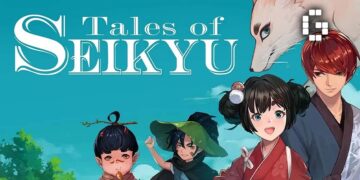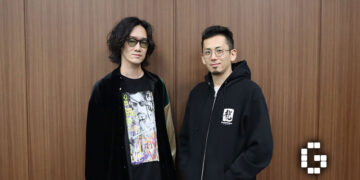We recently had the opportunity to interview Ryosuke Horii, Chief Director and Producer, and Yasuaki Uehara, Director, to unpack the intricate process behind Ryu Ga Gotoku (RGG) Studio’s Like a Dragon: Pirate Yakuza in Hawaii.
In the ever-evolving landscape of video game development, few studios have demonstrated the same level of creative audacity and player-focused innovation as RGG Studio. Their latest title, Like a Dragon: Pirate Yakuza in Hawaii, represents a bold departure from traditional franchise expectations, blending unexpected gameplay mechanics, narrative creativity, and a sense of unbridled fun that has become the studio’s hallmark.
A Whirlwind Development Journey and Reimagining Majima
The development of Pirate Yakuza in Hawaii emerged as a testament to the team’s extraordinary work ethic. “Well, what it really took for us to make the game in one year is just plain and simple. We worked really hard,” Horii emphasized.
The team’s approach went beyond mere hard work. “We used a number of assets from Like a Dragon: Infinite Wealth,” he explained. “It really is a matter of our know-how.” Their development philosophy was deeply rooted in collaborative creativity. “On our team, we have a number of members who have the same attitude about optimistically using trial and error to come up with new ideas,” Horii noted, highlighting the studio’s innovative spirit.

The character transformation of Goro Majima was a carefully crafted creative process. “The most important thing, however, is making him look cool, especially as the main character,” Horii stated. “Rather than portraying him realistically as 60, we wanted to focus on making him look as cool as possible.”
The development team was strategic about Majima’s storyline, including his amnesia. “We made the decision after consulting with the scenario writer, Mr. Furuta. So as we were consulting, we came up with a lot of concepts and premises,” Horii shared. When deciding on Majima’s narrative, their guiding principle was simple: “The key was simply thinking about what would be the most fun.”

The character’s international appeal was unexpected. Horii observed, “Sales overseas were particularly favorable, including in America.” He speculated that “Majima’s unhinged qualities as a protagonist” might have been particularly appealing, creating “a certain kind of upbeat atmosphere that isn’t even in Infinite Wealth.”
Innovative Gameplay Mechanics and Unexpected Creativity
Developing the game’s unique gameplay mechanics was a significant challenge. “Naval battles were the most difficult thing to develop,” Horii candidly admitted. “We hadn’t created something like the wide ocean setting, so that was a particularly huge challenge for us.”

Yasuaki Uehara provided deeper insight into their technical approach: “There was also the matter of creating the treasure islands, which are full of natural environments. We think that this ultimately resulted in our team gaining a lot of valuable experience.” The team was committed to maintaining the core game experience. “We wanted to create something so that it didn’t stray away from the same kind of fun or feel that you’d get from playing the original Like A Dragon,” Horii explained.
They were particularly proud of their hybrid combat system. “We found it really satisfying to create that blend of hack and slash gameplay and the ability to fight against multiple opponents as you would in a beat-em-up title,” Horii shared. Importantly, they wanted to ensure accessibility: “The more real they make the naval battle, they thought it would be harder for the players, so they wanted to ensure that the difficulty level was the same as other Like A Dragon games.”

The game’s musical element was a passion project for Horii. “I personally really like musicals and I’ve always thought about how I could incorporate that into a game,” he revealed. “Pirate stories in particular feature characters singing together, for example, like Sea Shanties. This game was a perfect chance to finally incorporate a musical element.”

The recording process became a bonding experience for the team. “When we recorded a certain song called ‘Song of Departure, Journey to the New World’ we all got along really well, almost as if we were a real band of pirates,” Horii recalled. “All the staff felt close together.” This was particularly noteworthy as “this was our first time creating a musical number like what you’d see at an amusement park. So we went over the choreography and other aspects of it many times.”
Future Outlook
The studio remains committed to innovation and surprise. “We want to give the player an experience that’s full of surprises,” Horii stated. When it comes to future Gaiden titles, their approach is refreshingly organic. “We don’t consciously go out of our way to create games based on a particular character,” Horii explained. “What we were most interested in doing with this title was following up on the events of Like a Dragon Infinite Wealth.”
Horii even mentioned, “Personally, I’m rooting for a game centered around Ono Michio, but I don’t think it would sell very well.”

Uehara summed up their journey: “We know that this is supposed to be a message for the readers, but we just want to personally say it was a huge challenge for us to create this title. We really learned a lot through the process and gained valuable knowledge that we can use in the future.”
Horii’s final message captures the studio’s forward-looking spirit: “Since this is a game centered around pirates, we really created something that feels different than a standard Like A Dragon title. Going forward, RGG Studios isn’t going to get caught up by the past. We’re looking forward and are particularly optimistic about delivering a new experience and more full of surprises.”

Like a Dragon: Pirate Yakuza in Hawaii stands as a bold testament to creative risk-taking, technical innovation, and an unwavering commitment to player enjoyment. Whether you’re completely new to the series or haven’t played since the early Yakuza games, Like a Dragon: Pirate Yakuza in Hawaii presents an accessible entry point that captures the essence of both Majima’s character and the series’ unique appeal.

A new legend begins as you step into the steel toe boots of Goro Majima, a man who has lost his memory and reinvents himself as a pirate on the open sea.
Embark on an over-the-top, modern-day pirate adventure with an ex-yakuza, now pirate captain and his crew as they engage in exhilarating combat on land and sea in the hunt for lost memories and a legendary treasure.










![[EXCLUSIVE] Taking Gundam in Bold New Directions – Interview with GQuuuuuuX Director Kazuya Tsurumaki](https://cdn.gamerbraves.com/2025/04/Kazuya-Tsurumaki_Interview_FI-1-360x180.jpg)


![[SEA Exclusive] From Shadows to Shipwrecks – Jennifer English Talks About Bringing Emotional Depth to Clair Obscur: Expedition 33](https://cdn.gamerbraves.com/2025/04/Clair-Obscur-Jennifer-English_Interview_FI-360x180.jpg)

![[EXCLUSIVE] Do the Game Interview – An Intimate Look at the Challenges of Game Development](https://cdn.gamerbraves.com/2025/04/Do-the-Game_Interview_FI-1-360x180.jpg)
![[EXCLUSIVE] Interview with the Minds Behind of Den of Wolves – 10 Chambers’ New Sci-Fi Heist FPS](https://cdn.gamerbraves.com/2025/04/Den-of-Wolves_Interview_FI-360x180.jpg)










![[GUIDE] SD Gundam G Generation Eternal Unit Tier List](https://cdn.gamerbraves.com/2025/04/SD-Gundam-G-Generation-Eternal-Tier-List_Review_FI-360x180.jpg)
![[GUIDE] Clair Obscur: Expedition 33 Tier List – From Gustave to Verso: Who Deserves Your Party Slot?](https://cdn.gamerbraves.com/2025/04/Clari-Obscur-Expedition-33-Character-Tier-List_Guide_FI-360x180.jpg)
![[GUIDE] Mastering Clair Obscur: Expedition 33 – Essential Tips for Success](https://cdn.gamerbraves.com/2025/04/Expedition-33_Guide_FI-360x180.jpg)